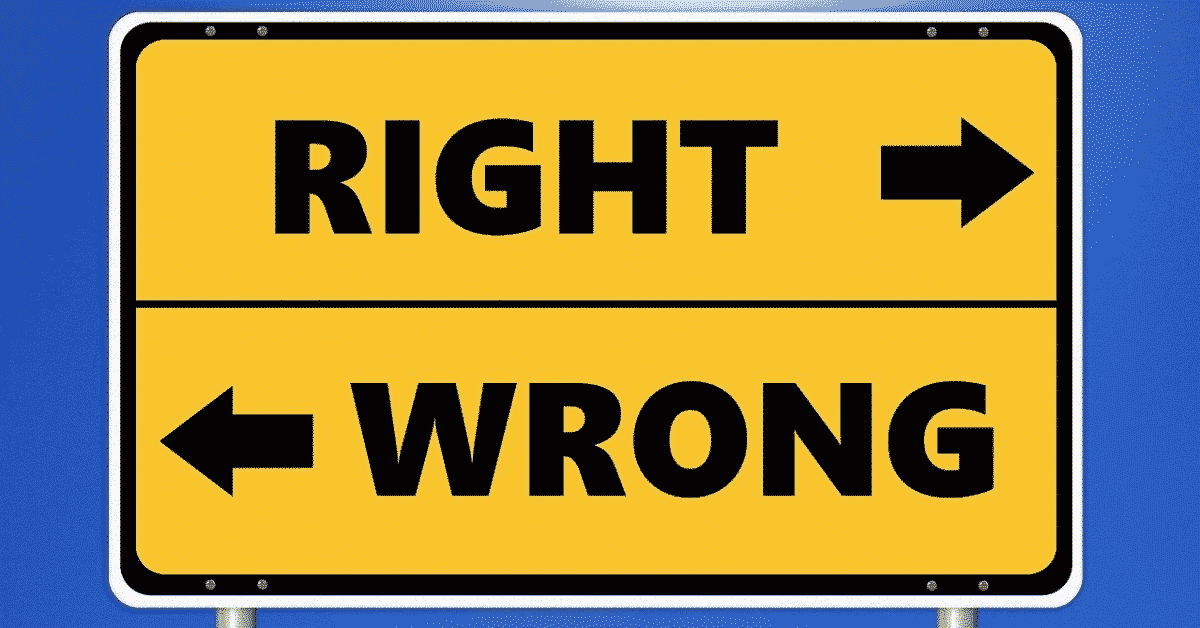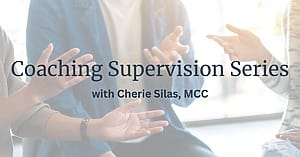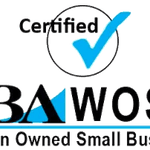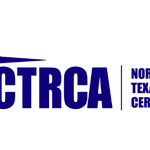“So you’re basically an unlicensed therapist?” The question came from a former colleague during a virtual coffee catch-up, right after I mentioned completing my MCC certification. There was an awkward pause on the screen.
TL;DR: A certified life coach is a trained professional who helps clients achieve specific personal or professional goals through structured methodologies and ethical practices. Unlike therapy which addresses past psychological issues, coaching focuses on future-oriented transformation. While certification isn’t legally required, 85% of coaching clients say it’s important that their coach holds a credential, and certified coaches typically earn 20-30% more than uncertified ones. ICF certification has become the global standard, ensuring coaches meet rigorous training requirements and ethical guidelines.
I took a breath, smiled, and said, “Actually, that’s exactly what I’m not.” Then I explained what being a certified life coach really means – and watched his skepticism transform into genuine interest. By the end of our call, he was asking about my availability.
I’m Cherie Silas, and after earning every level of ICF certification (ACC, PCC, and now MCC), I’ve learned that most people – including many aspiring coaches – don’t truly understand what certification means. Today, I want to clear up the confusion and show you why being a certified life coach matters more than ever in 2025.
The Truth About “Certified Life Coach”
Let me start with what surprises many people: Because coaching is an unregulated industry, you have a lot of flexibility in deciding what type of certification is right for you. Anyone can legally call themselves a life coach. No government agency oversees us. No license is required.
So why does certification matter?
Because in an unregulated field, certification becomes your differentiator. It’s how clients know you’re not just someone who read a self-help book and decided to charge for advice. It’s proof you’ve invested in learning proven methodologies, ethical standards, and professional practices.
Think about it from your potential client’s perspective. A certified life coach is a person trained to help other people navigate those more difficult periods in their lives. When someone is ready to invest thousands of dollars and share their deepest challenges, they want assurance they’re working with a trained professional, not a well-meaning amateur.
What Makes Someone a “Certified” Life Coach?
Not all certifications are created equal. After training hundreds of coaches at Tandem, I’ve seen the full spectrum – from weekend workshops that hand out certificates to rigorous programs that transform how you show up in the world.
Here’s what legitimate certification actually involves:
The Training Component
For instance, if you are going for the Associate type, you will require 60 hours of accredited coach training and an experience of 100 hours. On the other hand, if you are going for Master Certified coach training, then you’ll need 200 hours of professional coaching training and 2,500 of coaching experience.
But it’s not just about hours. Quality certification includes:
Structured Learning Methodologies: You don’t just learn to give advice. You master frameworks like the GROW model, which systematically helps clients set goals, assess reality, explore options, and commit to action. At Tandem, we teach multiple evidence-based models so you can adapt to different client needs.
Supervised Practice: Certified coaches don’t just rely on personal experiences. They follow structured coaching models that have been tested and refined over time. You practice under the watchful eye of mentor coaches who provide feedback on your technique, presence, and effectiveness.
Ethical Training: This is huge. When a client shares suicidal thoughts, when boundaries get blurry, when conflicts of interest arise – you need to know how to respond ethically and professionally. Our ICF Code of Ethics training prepares you for these critical moments.
Competency Assessment: You can’t just show up to class and get certified. ICF programs require demonstrated competency through recorded sessions, written exams, and performance evaluations. It’s rigorous because people’s lives are at stake.
The Credential Levels
The International Coaching Federation offers three levels of certification:
ACC (Associate Certified Coach): The entry point requiring 60+ hours of training and 100+ hours of client experience. This is where most coaches start, and it’s perfectly sufficient for building a thriving practice.
PCC (Professional Certified Coach): Requires 125+ hours of training and 500+ hours of experience. This demonstrates advanced coaching skills and typically comes after several years of practice.
MCC (Master Certified Coach): The pinnacle, requiring 200+ hours of training and 2,500+ hours of experience. Only about 4% of coaches ever reach this level. It represents true mastery of the coaching art.
Why ICF Certification Became the Gold Standard
When a coaching certification program is labeled as “ICF Certified,” it means that the program has been evaluated and accredited by the International Coach Federation (ICF), the leading global organization dedicated to advancing the coaching profession.
But why ICF specifically? I’ve watched the coaching industry evolve, and here’s what set ICF apart:
Global Recognition: Whether I’m training coaches in Dubai or Dallas, ICF certification is understood and respected. It’s become the MBA of coaching credentials.
Rigorous Standards: ICF doesn’t just accredit any program. They require specific competencies, learning hours, mentor coaching, and ongoing assessment. Programs undergo regular review to maintain accreditation.
Ethical Framework: The ICF Code of Ethics isn’t just suggestions – it’s a binding agreement that provides clear guidelines for professional conduct. This protects both coaches and clients.
Continuous Development: To maintain your credential, you must complete continuing education. The field evolves, and ICF ensures coaches evolve with it.
The Real Difference Certification Makes
Let me paint two pictures for you:
The Uncertified Coach
Sarah decides she’s good at giving advice. Friends always come to her with problems. She reads some coaching books, creates a website, and starts charging $50 per session. Her sessions meander. She often tells clients what she would do in their situation. When a client becomes suicidal, she panics and doesn’t know how to respond appropriately. Her practice struggles because she can’t articulate her value or demonstrate credibility.
The Certified Coach
Michael completes ICF training. He learns to ask powerful questions instead of giving advice. He understands how to structure sessions for maximum impact. When a client presents with depression symptoms, he knows how to refer appropriately while maintaining the coaching relationship. He charges $200 per session and has a waiting list because clients trust his credentials and see results from his proven methodologies.
The difference? Certification reassures clients that their coach knows what they’re doing and follows ethical standards. Without certification, there’s no guarantee of quality.
What Certified Life Coaches Actually Do
One of the biggest misconceptions is that life coaches are discount therapists. Let me be crystal clear about what we actually do:
We Don’t Treat Mental Health Issues
Unlike therapists, life coaches do not require formal degrees or certifications. Life coaching focuses on achieving specific personal or professional goals, whereas therapy addresses and resolves past psychological issues and mental health conditions. If a client needs therapy, we refer them to qualified professionals.
We Partner for Future-Focused Transformation
While therapy often explores past wounds to heal present pain, coaching starts with where you are and focuses on where you want to be. We’re not archaeologists digging through your childhood – we’re architects designing your future.
We Use Structured Methodologies
A certified coach doesn’t just chat with you about your problems. We use proven frameworks to:
- Clarify your vision and values
- Identify obstacles (internal and external)
- Generate creative solutions
- Create actionable plans
- Maintain accountability
- Celebrate progress
We Specialize in Specific Areas
Life Coaching jobs require an associate degree, and many require you to have a bachelor’s degree, but more importantly, coaches develop expertise in specific niches:
- Executive Coaching: Leadership development and professional growth
- Career Coaching: Job transitions and professional advancement
- Health & Wellness Coaching: Lifestyle changes and wellbeing
- Relationship Coaching: Communication and connection
- Financial Coaching: Money mindset and financial goals
- Life Transition Coaching: Navigating major life changes
At Tandem, we specialize in executive and leadership coaching, though our certification prepares coaches for any specialty.
The Business Reality of Certification
Let’s talk money, because this matters. In 2023, it is now a $2.85 billion global industry, and certified coaches capture the lion’s share of that revenue.
Here’s the financial reality:
Earning Potential
- Uncertified coaches: $50-150 per session
- ICF Certified coaches: $150-500+ per session
- Specialized certified coaches: $300-1,000+ per session
Market Access
Clients are more likely to feel safe and confident in your abilities when they know you’re formally trained and certified. This translates to:
- Corporate contracts (almost always require certification)
- Coaching platforms (many require credentials)
- Insurance reimbursement (emerging trend for certified coaches)
- Speaking opportunities (conferences prefer credentialed speakers)
Professional Credibility
When you can say “ICF Certified Coach” on your LinkedIn profile, website, and business cards, you immediately differentiate yourself from the thousands calling themselves coaches based on life experience alone.
The Investment vs. The Return
I’ll be transparent about the investment required:
Financial Investment
- ICF-accredited programs: $3,500-14,000+
- Non-ICF programs: $995-5,000
- Weekend certificates: $200-1,000
Time Investment
- ACC level: 6-9 months typical
- PCC level: Additional 1-2 years of practice
- MCC level: Minimum 5 years experience
The Return
Our graduates report:
- Recouping investment within 6-12 months
- 20-30% higher rates than uncertified coaches
- Access to opportunities unavailable to non-certified coaches
- Confidence that translates to better client results
But here’s what the numbers don’t capture: the personal transformation. The best coaches are those who’ve done their own work, and certification forces that inner journey.
When Certification Isn’t Necessary (And When It Is)
Let me be honest – not everyone needs certification:
You Might Not Need Certification If:
- You’re coaching internally within your organization
- You’re adding coaching skills to another profession
- You’re coaching as a hobby, not a business
- Your expertise is so specialized that credentials don’t matter
You Definitely Need Certification If:
- You want to build a sustainable coaching business
- You’re targeting corporate clients
- You want to charge professional rates
- You care about doing this work ethically and effectively
- You want to be taken seriously as a professional
The Path to Becoming Certified
If you’re considering certification, here’s your roadmap:
Step 1: Choose Your Path
Research ICF-accredited programs. Look for:
- Comprehensive curriculum covering all ICF core competencies
- Included mentor coaching (some charge extra)
- Flexible scheduling for working professionals
- Strong community and ongoing support
- Transparent pricing with no hidden fees
Step 2: Commit to the Journey
Certification isn’t just education – it’s transformation. Expect to:
- Confront your own limiting beliefs
- Practice being uncomfortable
- Receive challenging feedback
- Question everything you thought you knew about helping people
Step 3: Practice Relentlessly
Look for certifications that include real-world coaching opportunities—like peer coaching or supervised sessions—so you build confidence while you train. The more you practice, the more natural coaching becomes.
Step 4: Pass Your Assessments
Whether it’s the ICF exam or program requirements, take assessments seriously. They’re not hoops to jump through – they ensure you’re ready to serve clients professionally.
Step 5: Continue Growing
Certification is the beginning, not the end. The best coaches never stop learning, whether through continuing education, supervision, or their own coaching.
What Being “Certified” Really Means
After all these years and all these certifications, here’s what being a certified life coach means to me:
It means I’ve earned the right to sit across from another human being in their vulnerability and hold space for their transformation.
It means I’ve learned to trust the process, trust the client, and trust that powerful questions trump clever answers every time.
It means I can sleep soundly knowing I’m practicing ethically, professionally, and in service of my clients’ highest good.
It means when someone like my former colleague questions my credentials, I can answer with confidence – not arrogance, but the quiet confidence that comes from rigorous training and proven results.
The Future of Coaching Certification
The coaching industry is evolving rapidly. The coaching industry—largely unregulated—is crowded with self-proclaimed coaches. A certification sets you apart, showcasing your commitment and dedication to the profession.
Here’s what I see coming:
- Increased demand for certified coaches as consumers become more educated
- Insurance coverage for coaching services (already happening in some markets)
- Organizational requirements for certification (many companies already mandate it)
- Specialization certifications becoming more important
- Global standardization around ICF or similar frameworks
The message is clear: while you can practice without certification today, the market is moving toward professionalization. Those who invest in certification now will be positioned to thrive as standards rise.
Your Next Step
If you’re a potential client, now you know what to look for. Ask coaches about their certification. Understand what training they’ve completed. Don’t be afraid to choose certified coaches who charge more – you’re investing in quality.
If you’re an aspiring coach, you have a choice. You can join the ranks of self-proclaimed coaches competing on price, or you can invest in certification and compete on value.
The world needs more trained, ethical, effective coaches. The question isn’t whether you can coach without certification – it’s whether you should.
Being a certified life coach isn’t about the letters after your name. It’s about the commitment those letters represent – to your clients, to your profession, and to your own growth.
That’s what I explained to my colleague that day. By the way, he’s now one of my clients. Turns out, understanding what certification really means made all the difference.
Ready to explore what certification could mean for your coaching journey? Learn about our ICF-accredited programs and discover why Tandem coaches don’t just get certified – they get transformed.
P.S. My former colleague gave me permission to share this story. He says understanding the difference between certified and uncertified coaches was crucial in his decision to invest in coaching. He’s now leading his company’s most successful division – but that’s his story to tell.
Is "certified life coach" a protected title?
No, neither “life coach” nor “certified life coach” is legally protected. There are no formal education requirements necessary for life coaching, and as the job is not regulated by a federal or state agency, there is no need for a license. However, using “ICF Certified Coach” or similar credentials without earning them would be fraudulent. The lack of regulation makes choosing properly certified coaches even more important for consumers.
What's the difference between certified and credentialed?
Great question! “Certified” typically means you’ve completed a training program. “Credentialed” means you’ve gone further – completing training, practice hours, mentor coaching, and passing an exam through a body like ICF. At Tandem, our programs prepare you for both certification (through us) and credentialing (through ICF). Think of certification as your education and credentialing as your professional recognition.
Is online certification as valid as in-person?
Absolutely. ICF accreditation ensures that your certification is a solid investment in your future, regardless of delivery method. Online programs must meet the same rigorous standards as in-person training. At Tandem, our online format allows global participation while maintaining high interaction through live sessions, breakout rooms, and mentor coaching. The key is interaction level, not physical location.
Can I specialize immediately after certification?
While you can market yourself in a specialty immediately, the best specializations emerge from experience. Career and mindset coaching are the most popular ones. They’re not only high in demand but also pay the highest. However, rushing into a niche without experience often backfires. Start with general life coaching, notice which clients energize you, then naturally evolve into your specialty. Your certification provides the foundation; experience shapes your focus.
How do I verify if someone is really certified?
Always verify certification claims. For ICF credentials, use the ICF Credential Verification service on their website. Ask coaches: Where did you train? What certification do you hold? Can you provide your credential number? Legitimate certified coaches will gladly share this information. Be wary of coaches who are vague about their training or use terms like “certified by life experience.”
What if I'm already coaching without certification?
Many successful coaches started without certification, then pursued it to level up. If you’re already coaching, certification can help you: charge higher rates, access new markets, refine your techniques, join professional communities, and practice more ethically. Consider it an investment in your business’s future. Our programs include experienced coaches who want to formalize their practice – you’re not starting over, you’re building on your foundation.
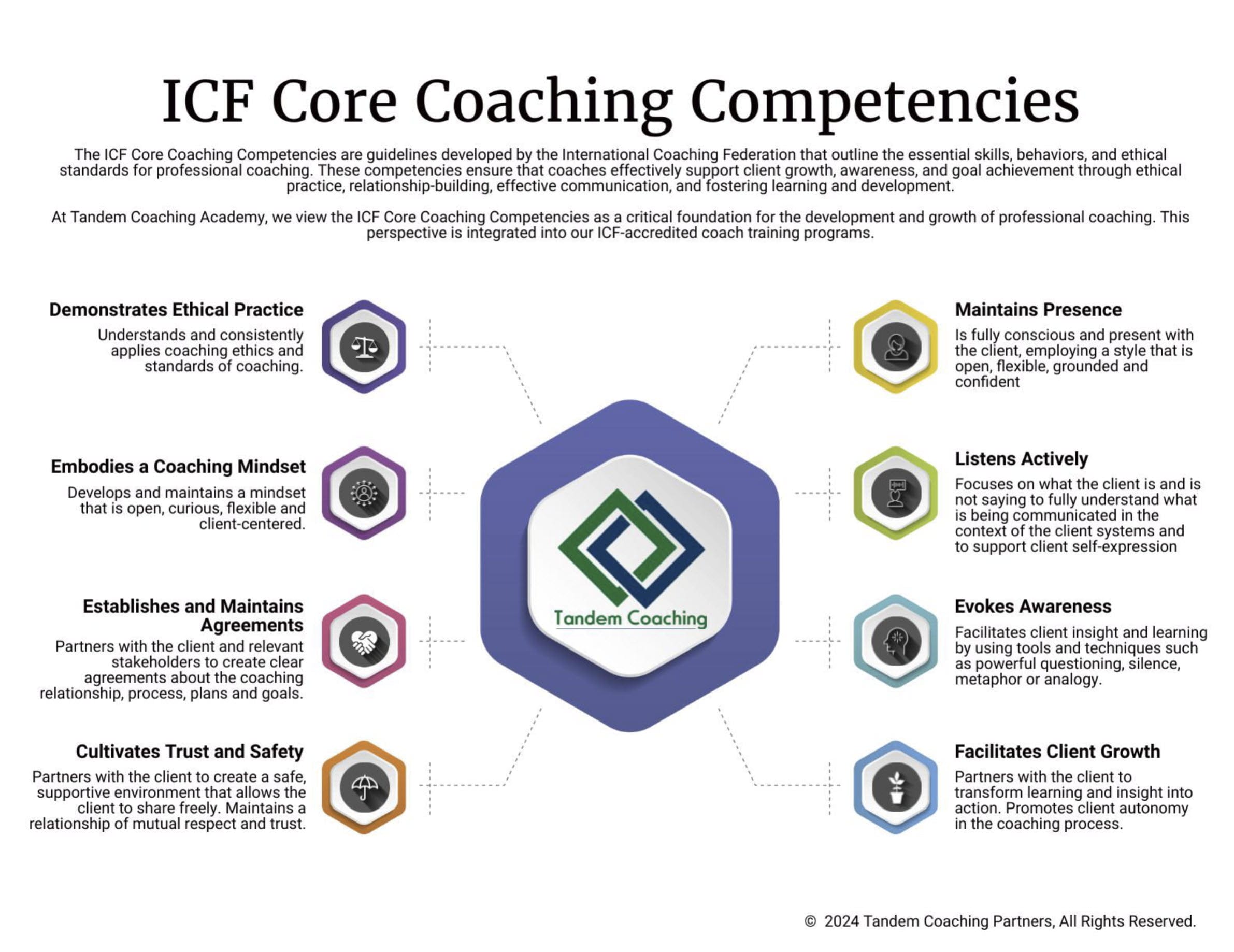
Unlock Your Coaching Potential with Tandem!
Dive into the essence of effective coaching with our exclusive brochure, meticulously crafted to help you master the ICF Core Coaching Competencies.
"*" indicates required fields
About the Author
Cherie Silas, MCC
She has over 20 years of experience as a corporate leader and uses that background to partner with business executives and their leadership teams to identify and solve their most challenging people, process, and business problems in measurable ways.
